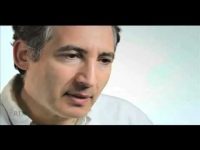人間は頭を使う生き物
00:13 The major advantage that humans have over every other species is our ability to think rationally. It’s allowed us to build cities cars computers, and essentially bend nature to our will. The quality with which we think determines the quality of our future. It’s undeniable. Quality thinkers are critical thinkers.
In my last essay you may have seen that after the first two years of college, 45% of students showed no gains in critical thinking. 45% that’s almost half. It’s frightening because the same system that made our cities so powerful. School is now becoming a system of Indoctrination for our young the quality of our future is defined by the quality of our thinkers. The quality of our thinkers is determined by their abilities to think critically. Before we can dive deeper into critical thinking we need to discuss rational thinking.
論理的思考能力とは
So let’s define rational thinking. A perfectly rational being which doesn’t exist makes decisions purely based on logic, data, and empirical evidence. Let’s assume that it’s the highest form of conscious thought. Critical thinking can be seen as a necessary step towards perfectly rational thinking. A critical thinker thinks offensively. They take active ownership of their learning and understanding. Just as a bodybuilder finds a natural habitat in the gym the critical thinker finds enjoyment in mental strain. They know a tough mental workout will strengthen their ability to think rationally. A passive thinker thinks defensively. How can I fit in? What will make people accept me? What will help me pass this test? They avoid mental strain and outsource the difficult thinking to others. They default on the opinion of experts, instead of forming their own. A critical thinker thinks in terms of systems. But a passive thinker thinks in terms of goals.
受動的思考者と批判的思考者のもたらす結果は似て非なる
The passive thinker asks what will get me an A on this essay. The critical thinker asks what are the traits of an excellent essay. The end result for both is the same. A perfect grade. On the surface, the two paths may seem the same but they’re not. The critical thinker formed a system that can reproduce the same result in multiple situations for various people. But passive thinker achieves the result in a specific scenario. The passive thinker is focused on outputs while the critical thinker is focused on inputs. This is a very subtle, but important difference in character.
批判的思考習慣を身につけるメリットとは?
So what benefits do habitually critical thinkers obtain over others?
Firstly, they’re better at decision making critical thinkers are less likely to make sudden judgments without a clear understanding of the information at hand. As a result, they’re less likely to make irrational and emotional decisions or be manipulated by others.
Secondly, they’re more empathetic. Critical thinkers understand that we all have our own unique view of the world. They avoid judging others until they have attempted to step into their shoes and try to understand how they see the world. This ability helps them diffuse tense situation and aids in persuasion. It’s an essential skill for any great leader or teammate. Critical thinkers are deeper learners. When they don’t know something, critical thinkers admit that they don’t know. They only speak on topics that they have actively studied for themselves.
And lastly, critical thinkers are more creative. Without critical thinking, creativity would not exist. If creativity is the creation of something original, then critical thinking is a crucial part of the recipe. Critical thinkers refuse to blindly accept the ideas and values of others, which results in the generation of new ideas.
どうやって批判的思考能力を身につけるか
So critical thinking is important and beneficial, but how does one become a critical thinker? That’s what we’ll discuss in the next video.



